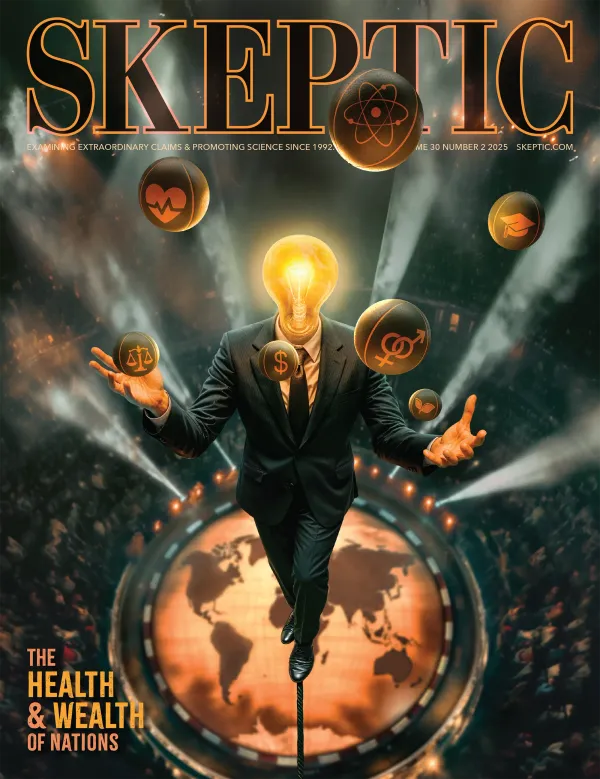
Magazine


Fashion & the Human Body
Volume 30 Number 1 2025
Crime and Punishment
Volume 29 Number 4 2024
Animal Minds
Volume 29 Number 3 2024
Culture Wars
Volume 29 Number 2 2024
Artificial Intelligence
Volume 29 Number 1 2024
Health Matters
Volume 28 Number 4 2023
Education Matters
Volume 28 Number 3 2023
Energy Matters
Volume 28 Number 2 2023OUR MISSION
To explore complex issues with careful analysis and help you make sense of the world. Nonpartisan. Reality-based.
About Skeptic Magazine



